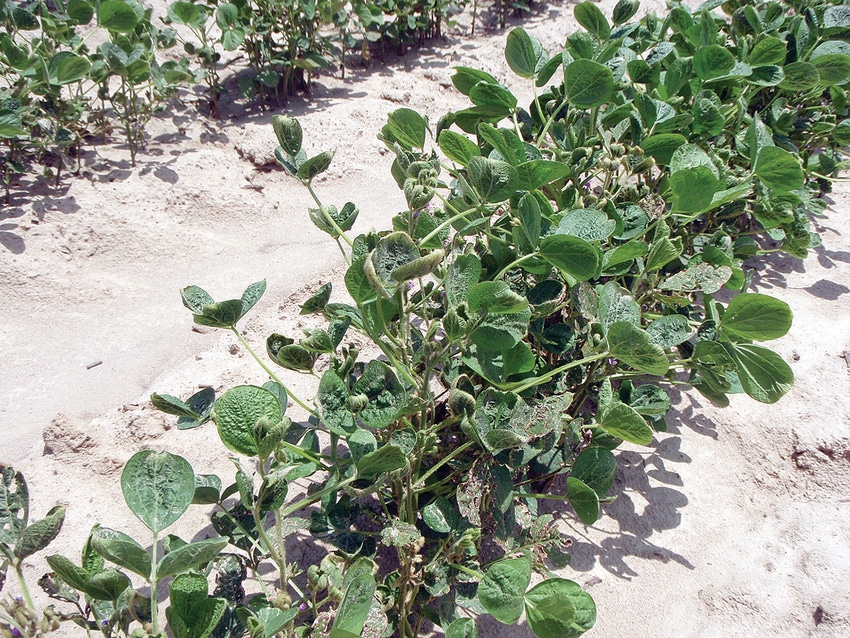July 26, 2017

In my recent testimony before the Arkansas Joint Agriculture, Forestry and Economic Development Committee, I presented some brief background information on dicamba. It was first registered in 1967, primarily as a corn herbicide. In Arkansas, it has been used primarily as a pasture and turf herbicide and for vegetation burn-down prior to planting cotton, soybeans and other crops.
It is a synthetic auxin herbicide which produces auxin-like or hormone-like symptoms in susceptible plants — primarily dicots. Symptoms include cupping of leaves, twisting, curling, stunting, yield reduction and carryover into the seed that can produce symptoms in the progeny if planted.
Synthetic auxin herbicides in general are more difficult to use without damage to off-target vegetation than other types of herbicides. Arkansas had “hormone herbicide” regulations in place before I became a University of Arkansas faculty member in 1974. These were initially put in place due to off-target issues with 2,4-D in cotton. A variation of these regulations remains in place today.
Dicamba has a volatility component, which means it can change from a liquid or solid to a vapor after spraying and move off-target after application. This is a totally different process than the physical drift of spray particles during application.
In the early days of 2,4-D before the switch was made from ester formulations to amine formulations, you would hear farmers comment that “it got up and walked off after application!” That is not a bad analogy.
Since the initial development of dicamba there has been a lot of research on both the volatility and efficacy of different formulations. Common commercial formulations are the DMA salts like Banvel, the DGA salts like Clarity and now the BAPMA salt Engenia. The DMA salts are the most volatile, the DGA salts less volatile and the BAPMA salt the least volatile of those tested by the University of Arkansas.
None are non-volatile
None of the dicamba formulations on the market are non-volatile. There have been non-volatile formulations such as calcium and aluminum salts developed in the past, and those are referenced in the literature. It is my understanding that in the early days if volatility was completely removed with a formulation, the efficacy was unacceptable. I have to wonder that with advances in science if this has been researched to the extent possible.
A common question is “Dicamba has been around for years, why the off-target issues all of a sudden?” There can be a lot of reasons, but the primary two are we have never sprayed large acreages in a given area, and we have never sprayed it in summer temperatures.
Previous uses such as in corn, cereal crops, and pastures or as a burn-down herbicide have been during periods where temperatures are cooler, susceptible crops have not emerged and perennial vegetation has not leafed out. In addition, dicamba just has not been used on a landscape or broad acre basis to provide the opportunity to load the air with the herbicide.
The use of dicamba in Xtend crops is the first broad scale use of the herbicide in summer temperatures with susceptible crops and vegetation emerged. Spraying broad acres with an auxin herbicide (which can cause damage at extremely low doses and still has a volatility component) in the summer simply makes this herbicide different than anything we have sprayed before.
About the Author(s)
You May Also Like




